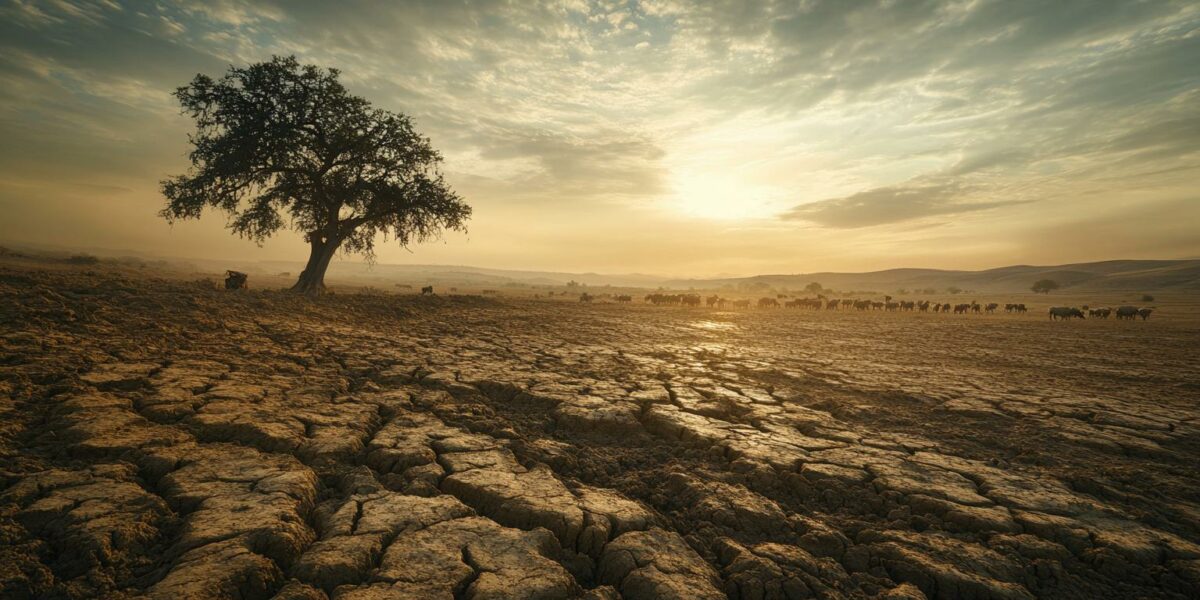Climate Change Driving Conflict in Nigeria
During a briefing at the UN Headquarters, UN Resident and Humanitarian Coordinator in Nigeria Mohamed Malick Fall emphasized the severe effects of climate change on the nation. He noted that climate-related disruptions are causing displacement and fueling conflicts, especially between farmers and herders competing for limited resources.
The climate crisis is intensifying these clashes, as herding communities are forced to abandon their traditional lands in search of better grazing areas. This migration is leading to increased tensions and violent confrontations over the dwindling resources.
These challenges highlight the urgent need for global attention and action to address the root causes of such conflicts and support affected communities in adapting to changing environmental conditions.
The UN’s role in shedding light on these issues is crucial, as it helps mobilize international support and resources to mitigate the impacts of climate change on vulnerable populations.
Positive Developments in the Northeast
Mr. Fall shared some optimistic news regarding the Boko Haram insurgency in Nigeria’s northeast. The situation has shown signs of improvement, offering hope to many affected by the conflict.
According to a recent UN International Organization for Migration (IOM) survey, around 37% of displaced individuals expressed a desire to return to their homes. In regions like Borno state, this number rises to 67%, indicating a strong willingness to rebuild and move forward.
Another 38% of those surveyed preferred to stay in their current locations and integrate into local communities. Their decisions are influenced by factors such as:
- The reconstruction of homes in their places of origin
- Improved security in areas where they have been displaced
- Economic opportunities in new locations
These findings underscore the importance of sustained support and investment in both rebuilding efforts and local integration initiatives.
Addressing Rising Inflation
In his address, Mr. Fall highlighted the Nigerian Government’s efforts to implement economic reforms under the “Renewed Hope” agenda. Despite current challenges, there is optimism that inflation may begin to decrease by the end of the year.
However, rising prices, especially for food, are currently placing a strain on people’s ability to lead decent lives. This situation is exacerbating the hardships faced by many Nigerians, particularly those already affected by displacement and climate change.
The UN is working closely with the Government to tackle these economic challenges, aiming to stabilize prices and improve living conditions for all citizens.
It is essential for international partners to support these efforts to ensure sustainable economic growth and stability in Nigeria.
UN’s Dual Approach to Support
To address the complex challenges in Nigeria, the UN is aligning its operations with the Government’s priorities through a two-track approach. This strategy aims to provide comprehensive support to the nation.
The first track focuses on humanitarian response, saving lives and reducing vulnerabilities. This includes providing immediate relief and support to those affected by crises and environmental changes.
The second track emphasizes development, working towards achieving the Sustainable Development Goals (SDGs). This involves long-term projects aimed at fostering resilience and sustainable growth.
By integrating these two approaches, the UN seeks to create a more stable and prosperous future for all Nigerians, addressing both immediate needs and long-term development goals.



bella
So, what specific actions are being taken to mitigate these climate impacts?
arianna_solar
Hopefuly the economic reforms will help. Food prices are insane right now. 😭
Avery
Why isn’t this more widely reported? Seems like a big deal!
MasonBeacon
Great to hear there’s some positive news about the Boko Haram situation. 😊
PepperSeraph
Is the UN doing enough to support the affected farmers and herders?
whiskers
Thank you for shedding light on this important issue. It’s crucial we pay attention!
lillian
It’s crazy how interconnected everything is. Climate change, conflict, and now even inflation!
JasonIllusion
Interesting read, but how is the Nigerian government responding to these resource conflicts?
Ginger
Wow, I had no idea climate change was causing such issues in Nigeria. What can we do to help? 🌍